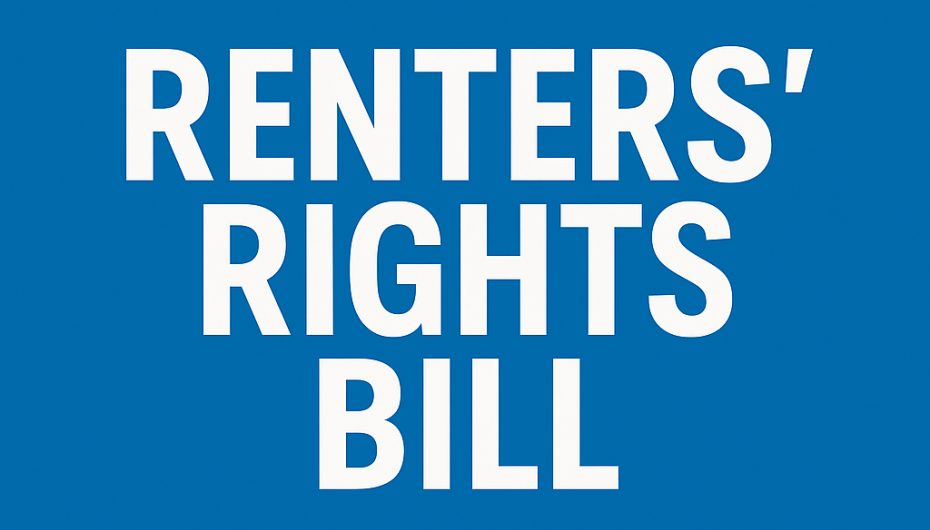 4th September 2025
4th September 2025
Key Dates for Renters Rights Bill – the likely timetable
The government’s Renters Rights Bill is edging closer to becoming law, with significant changes on the horizon for landlords across England. The Bill returns to the House of Commons on Monday, 8th September, and experts believe the government is keen to pass it in time for an announcement by Housing Secretary Angela Rayner at the Labour Party Conference, starting 28th September.
While this legislation promises to transform the Private Rented Sector (PRS), there are key timelines, reforms, and implications that every landlord needs to understand.
Where We Are Now: The Final Stages
According to Kate Faulkner of Property Checklists, the Bill has reached the Consideration of Amendments stage, meaning it’s in the final stretch before becoming law.
“Although there could technically be a period of ‘ping pong’ between the Commons and the Lords,” Faulkner explains, “it’s likely this will be fast-tracked so that Royal Assent can be granted before the end of September.”
However, Royal Assent doesn’t mean immediate enforcement. Experts have called for a grace period to allow landlords, agents, and tenants time to adapt. While the Bill may pass this month, Faulkner forecasts that the earliest implementation date for most measures will be January 2026, with many changes more likely to take effect from March or April 2026.
Key Reforms Landlords Need to Prepare For
Several major reforms are set to reshape the landlord-tenant relationship. Paul Shamplina, founder of Landlord Action, highlights the most immediate changes expected:
- Abolition of Section 21 “no-fault” evictions
- Transition to open-ended periodic tenancies
- Stronger Section 8 grounds for regaining possession
- Limits on rent increases to once per year, via a Section 13 notice
- End of rent bidding wars – landlords will no longer be able to accept offers above the advertised rent
- Ban on asking for more than one month’s rent upfront
- New rights for tenants to request pets
- Stronger anti-discrimination rules, particularly for tenants on benefits or with children
Shamplina warns:
“These reforms bring sweeping changes, but without proper investment in the court system to support landlords, we risk seeing delays and reduced confidence in the sector.”
Impact on New vs Existing Tenancies
Allison Thompson, Head of Lettings at Leaders Romans Group, stresses that some provisions will affect new tenancy agreements from day one.
“For example, the Rent Increase Amendment will immediately change how rents are reviewed and negotiated. While details on existing tenancies are yet to be confirmed, most measures are expected to be phased in gradually.”
This means landlords should start reviewing tenancy agreements, rent review clauses, and notice periods now to ensure compliance when the changes take effect.
Longer-Term Reforms to Expect
Other parts of the Bill will take longer to implement due to the scale of operational change required:
- Decent Homes Standard for rented properties
- Creation of a PRS database and Landlord Portal
- Establishment of a mandatory Landlord Ombudsman Service
- Introduction of Awaab’s Law, setting stricter timelines for resolving damp and mould issues
According to Susie Crolla, Managing Director of the Guild of Letting & Management, reforms like mandatory Ombudsman membership, new rules on pets, upfront rents, and rental bidding are likely to take effect on 1st April 2026.
What Landlords Should Do Now
With these changes looming, preparation is key. Here are Boydens’ top recommendations:
- Review your tenancy agreements now to ensure they’re ready for open-ended tenancies and new notice periods.
- Plan for rent review changes by updating your processes to comply with annual limits and Section 13 notices.
- Assess property standards to ensure future compliance with the Decent Homes Standard.
- Prepare for mandatory Ombudsman membership and the introduction of the Landlord Portal.
- Seek expert advice early – acting now will help you stay compliant and protect your investment.
How Boydens Can Help
At Boydens, we’re committed to keeping landlords informed, compliant, and ahead of the curve. Our lettings experts are already preparing for the upcoming reforms and can:
- Review and update tenancy agreements
- Provide rent review guidance under the new rules
- Ensure your properties meet the Decent Homes Standard
- Support you with portfolio planning to protect yields and reduce risk
If you’re a landlord in Essex or Suffolk, now is the time to act.
📞 Speak to our lettings specialists today to make sure you’re fully prepared for the changes ahead.







